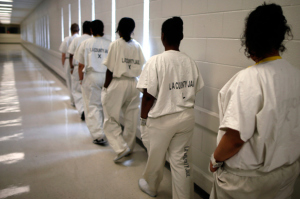Mississippi Votes on Amendment Defining Life at Conception
Pro-life Supporters Say Tactics Against Personhood Amendment Not Working
Last-ditch efforts by pro-abortion groups to prevent Mississippi voters from voting on Tuesday for the passage of the “personhood” amendment that would define life as beginning at conception are not working, supporters of the amendment said.
A “yes” vote on the Statewide Initiative Measure 26, otherwise known as the Personhood Amendment, would change the definition of a person to include “every human being from the moment of fertilization, cloning or the functional equivalent thereof."
Gov. Haley Barbour released a statement on Friday accusing a pro-abortion group of calling people’s homes and deceiving voters into thinking he is opposed to the amendment.
At a press conference hosted by Yeson26.net., the Christian Action Committee, and the pro-life group’s legal team at the Mississippi State Capitol building Monday, the governor reiterated his support of the amendment.
“As I’ve previously stated, I voted for the Personhood Amendment. These misleading calls were made without my knowledge, without my permission and against my wishes,” Barbour said. “I have demanded this deception be stopped, and those responsible have assured me that no more calls will be made.”
The coalition of pro-life advocates at Monday’s press conference also addressed the fear tactics used by the pro-abortion side that included the implication that all forms of abortion and emergency contraception would become illegal and threaten the medical community.
“It is inconceivable that a reasonable understanding of Mississippi law, even subsequent to passage of the Personhood Amendment, could lead to the prosecution of a doctor who terminated an ectopic pregnancy or otherwise treated a pregnant patient with the primary intention of preserving the mother’s life,” stated George S. Whitten, Jr., an attorney from the Mississippi Center for Public Policy.
“Doing so would be analogous to prosecuting a homeowner for arson because his house burned down after a spark escaped from a fire in his fireplace. In other words, it would be a frivolous case based on a complete ignorance of the context surrounding the action in question,” Whitten added.
Rob Chambers, who is a consultant with the Christian Action Commission, which is a ministry of the Mississippi Baptist Convention, said he is optimistic about the amendment being approved by a majority of the state's voters.
“I think people are going to examine their own conscience as opposed to all the collateral noise that’s going on and are going to vote ‘yes,’” Chambers told The Christian Post. “Mississippi is one of the most pro-life states in the nation. People will examine their core convictions when they get in [the voter’s booth].”
Chambers said that once the amendment passes, the fundamental difference in the state’s law is that it will make abortion-on-demand illegal and not bring on legal complications.
“We addressed the scare tactics that are put out there by Planned Parenthood and the ACLU’s front group, Mississippi for Health Families, and we dispelled all of them,” he said. “By the end of the day, it is our confident hope that [the amendment] will pass.”
Personhood USA, the group behind the Personhood Amendment, wants U.S. law to recognize that an unborn fetus is a person and reverse the standards as determined in the 1973 landmark Roe v. Wade case on abortion. The U.S. Supreme Court ruled that a woman had the right to have an abortion. However, that right must be balanced against the state’s legitimate interests for regulating abortions to protect prenatal life and the mother’s health.
"The basic constitutional question, initially is, whether or not the unborn fetus is a person,” said Chief Justice Burger during the Roe v. Wade case. “That's critical to this case is it not? Could Texas, constitutionally in your view, declare, by statute, that a fetus is a person for all constitutional purposes?"
Pro-abortion attorney Sarah Weddington answered: "The state could obviously adopt that kind of statute, and then it would have to be adjudicated."
Yeson26.net officials are calling on the U.S. Supreme Court to recognize that “personhood has been the obvious answer, right under our nose, from the very beginning.”





























